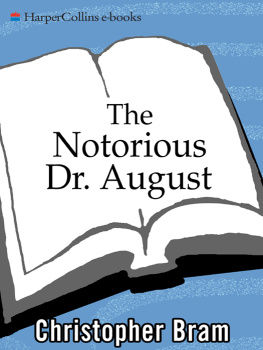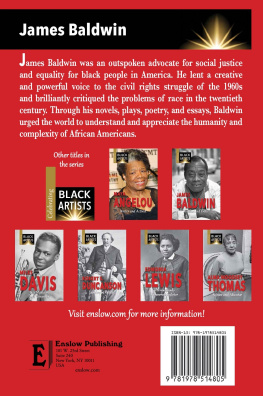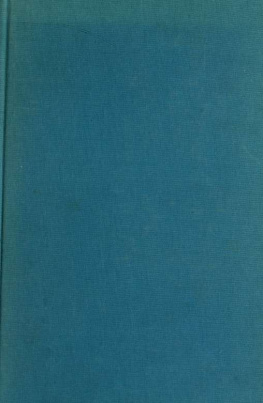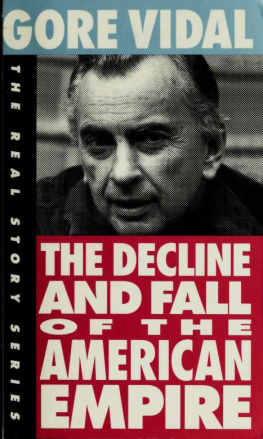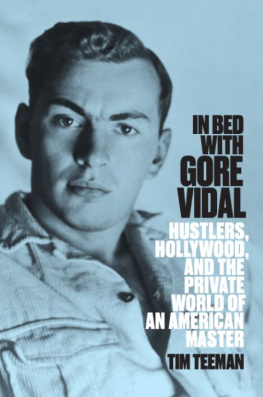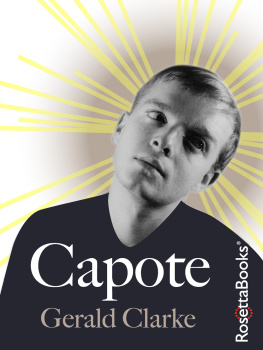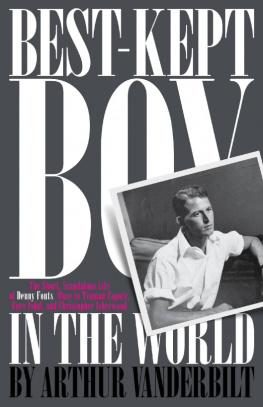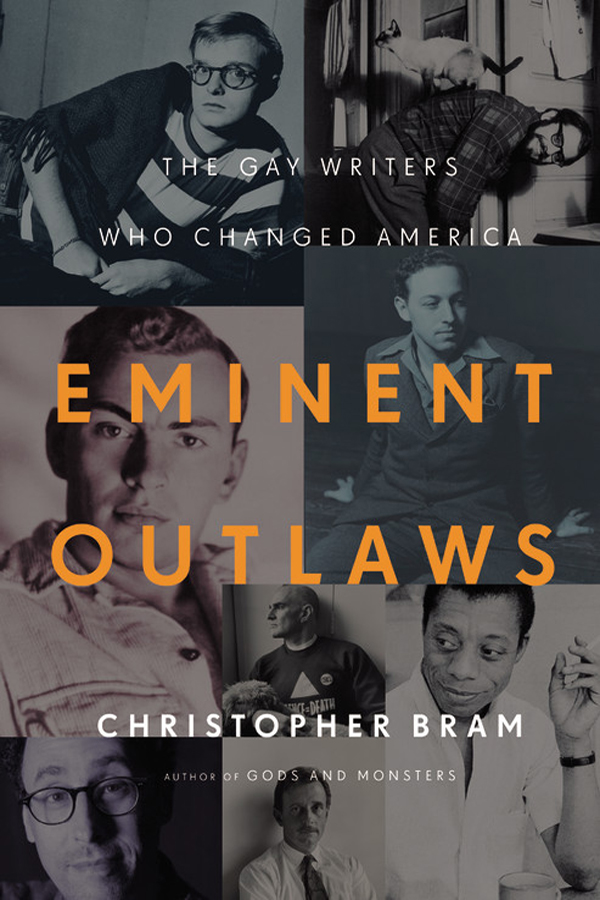Copyright 2012 by Christopher Bram
All rights reserved. In accordance with the U.S. Copyright Act of 1976, the scanning, uploading, and electronic sharing of any part of this book without the permission of the publisher is unlawful piracy and theft of the authors intellectual property. If you would like to use material from the book (other than for review purposes), prior written permission must be obtained by contacting the publisher at permissions@hbgusa.com. Thank you for your support of the authors rights.
Twelve
Hachette Book Group
237 Park Avenue
New York, NY 10017
www.hachettebookgroup.com
www.twitter.com/grandcentralpub
First e-book edition: February 2012
Twelve is an imprint of Grand Central Publishing.
The Twelve name and logo are trademarks of Hachette Book Group, Inc.
The publisher is not responsible for websites (or their content) that are not owned by the publisher.
The Hachette Speakers Bureau provides a wide range of authors for speaking events. To find out more, go to www.hachettespeakersbureau.com or call (866) 376-6591.
ISBN 978-0-446-57598-0
Fiction
Surprising Myself
Hold Tight
In Memory of Angel Clare
Almost History
Gods and Monsters
Gossip
The Notorious Dr. August: His Real Life and Crimes
Lives of the Circus Animals
Exiles in America
Nonfiction
Mapping the Territory: Selected Nonfiction
To Draper
T he gay revolution began as a literary revolution.
Before World War II, homosexuality was a dirty secret that was almost never written about and rarely discussed. Suddenly, after the war, a handful of homosexual writers boldly used their personal experience in their work. They were surprisingly open at first, then grew more circumspect after being attacked by critics and journalists. But they were followed by other writers who built on what they had initiated. The world was changing and the new authors could be more open; their openness produced further change. A third set of writers took even greater liberties, treating their sexuality as equal to straight sexuality, no better and no worse.
This book is the history of fifty years of change shaped by a relay race of novelists, playwrights, and poetsmen who were first treated as outlaws but are now seen as pioneers and even founding fathers. Their writing was the catalyst for a social shift as deep and unexpected as what was achieved by the civil rights and womens movements.
Beginning with figures as different as Gore Vidal, Allen Ginsberg, and James Baldwin, these men are wonderful characters in their own right: smart, articulate, energetic, ambitious, stubborn, and even brave. They were often brilliantly funny. They were never boring. They could also be competitive, combative, self-destructive, and confused. Their lives were not always exemplary. A career in the arts can make anyone crazy (We Poets in our youth begin in gladness, wrote William Wordsworth, But thereof come in the end despondency and madness), but to tell gay stories in the Fifties and Sixties (and later, too) guaranteed further hardship. Not only was it difficult just to get published or produced, but success often led to literary attacks that ran from brutal insult to icy condescension.
This is a collection of war stories, but its also a collection of love stories.
This book is about gay male writers and not lesbian writers. I chose this focus reluctantly, but I needed to simplify an already complicated story. Also, lesbian literature has its own dynamic and history. It needs its own historian.
The story of these men has never been told as a single narrative before, which is surprising. Contemporary critics often complain that literature is no longer culturally important, yet it played a huge role in the making of modern gay life. Teachers used to tell us that only bad art is political (Thou shalt not commit/A social science, wrote W. H. Auden), but I believe that good art can lay the groundwork for social change. Ernest Hemingway, of all people, indicated why when he said a writer must learn to recognize , and had been taught to feel. Which is what all gay people, not just writers, must learn before they can create their own lives. This book is about a few authors who decided to write about what they really felt, even when it made their working life more difficult.
A few words about words: I sometimes use gay to describe books and people in times when the word was not yet fully in use. It was preferable to the words that were common then, such as pervert, homo, pansy, and faggot. People might argue that a man who called himself a pansy in 1950 had a different identity from one who called himself queer in 1995. But gay people today, no matter what they call themselves, occupy a very broad spectrum of desires, personas, and self-definitions..
I am primarily a novelist, a gay novelist, but I deliberately left myself out of this story. It wouldve been impossible to talk about my own work without sounding self-serving. However, my own books cant help casting a shadow. I wont pretend to be objective here: work that I admire is often work that influenced me or that I feel a kinship with.
This is not an all-inclusive, definitive literary history. I do not include everyone of value or importance. Nor am I putting together a canon of must-read writers. I am writing a large-scale cultural narrative, and I include chiefly those authors who help me tell that storyand who offer the liveliest tales.
My models were literary histories that mix criticism with biography, social history, good gossip, and a strong point of view. My favorite works in this line include Patriotic Gore by Edmund Wilson, Exiles Return by Malcolm Cowley, and The Great War and Modern Memory by Paul Fussell. Enjoyable in themselves, these books always leave me eager to read or reread a half-dozen other books when I am done. I hope this history has the same effect on its readers.
When will you take off your clothes?
Allen Ginsberg

T he second atom bomb fell on Nagasaki, the war ended, and nineteen-year-old Eugene Gore Vidal came home to New York. The boyish prep school graduate had served as a warrant officer on an army ship in the Aleutians, a sort of seagoing sergeant. He was now stationed out on Long Island before being discharged. He brought with him a manuscript he had begun writing in training camp, a Hemingway-like novel titled Williwaw about shipboard life.
He spent his weekends in the city, staying in the back bedroom of his father and stepmothers huge apartment on Fifth Avenue, working on the novel during the day and visiting Times Square at night. There he met other men in uniform in the male-only half of the busy bar at the Astor Hotel or in the movie theaters crowded along Forty-second Street. He would take his new acquaintances to a nearby bathhouse or hotel for sex. Young Vidal assumed he would eventually marry, but now he only wanted to make up for all the fun he had missed in boarding school and the army. He was not interested in love. He would later insist that the only man he ever loved was a classmate at St. Albans, Jimmie Trimble, who died on Iwo Jima.
His blind grandfather, Senator T. P. Gore of Oklahoma, spoke of setting him up in New Mexico after college in a political career. The grandson wasnt particularly interested in college, however, and thought thered be plenty of time for politics later. His father, Eugene Vidal Sr., an airline pioneer who had been on the cover of


